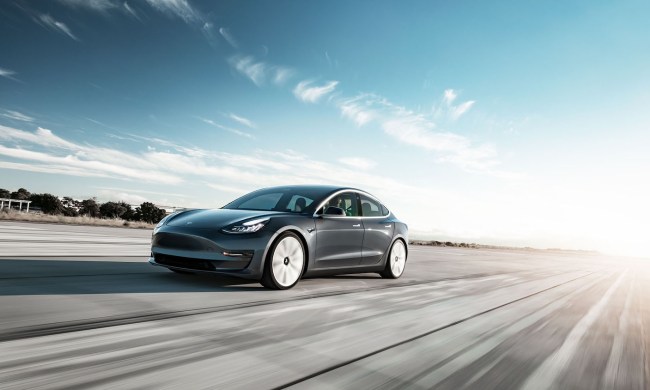
Volvo is about to take its biggest step yet towards bringing a self-driving car to market with a pilot project that’ll put 100 such vehicles onto public roads in the Swedish city of Gothenburg.
The project, called ‘Drive Me’, will involve the autonomous cars using around 30 miles (50 km) of selected roads in the city, dealing with everyday driving conditions and situations.
The initiative, described by the car maker as “the world’s first large-scale autonomous driving pilot project”, will kick off next year with customer research and technology development, with the self-driving vehicles expected to take to the roads in 2017.
“Our aim is for the car to be able to handle all possible traffic scenarios by itself, including leaving the traffic flow and finding a safe ‘harbor’ if the driver for any reason is unable to regain control,” Erik Coelingh, technical specialist at Volvo, said in a release.
The project plans to explore a number of areas, such as how self-driving cars can benefit both society and the economy through improving traffic efficiency and road safety, as well as the necessary infrastructure changes needed for autonomous driving. The confidence of passengers inside such vehicles will also be evaluated, Volvo said.
The specially adapted Volvo XC90 cars set to take part in the Drive Me project have been defined as ‘Highly Autonomous Cars’, which essentially means all driving actions can be handled by the vehicle, although, according to Volvo, “the driver is expected to be available for occasional control but with a sufficiently comfortable transition time.”
Fully automated parking using a mobile app will also be possible – in other words, the car owner can exit the car before sending it off to a parking space.
Although Google often gets much of the media coverage with its work on driverless vehicles, most car companies have also, for a long time, been working on autonomous driving technology, much of it emerging from their work on crash-avoidance systems. Automakers such as Nissan, Mercedes-Benz, Toyota, Audi, and General Motors are all making steady progress in the field, with Volvo’s Drive Me project a clear indication of the industry’s determination to bring fully autonomous vehicles to car showrooms in the not-too-distant future.
[Source: Volvo] [Image: VV Jovanovic / Shutterstock]


